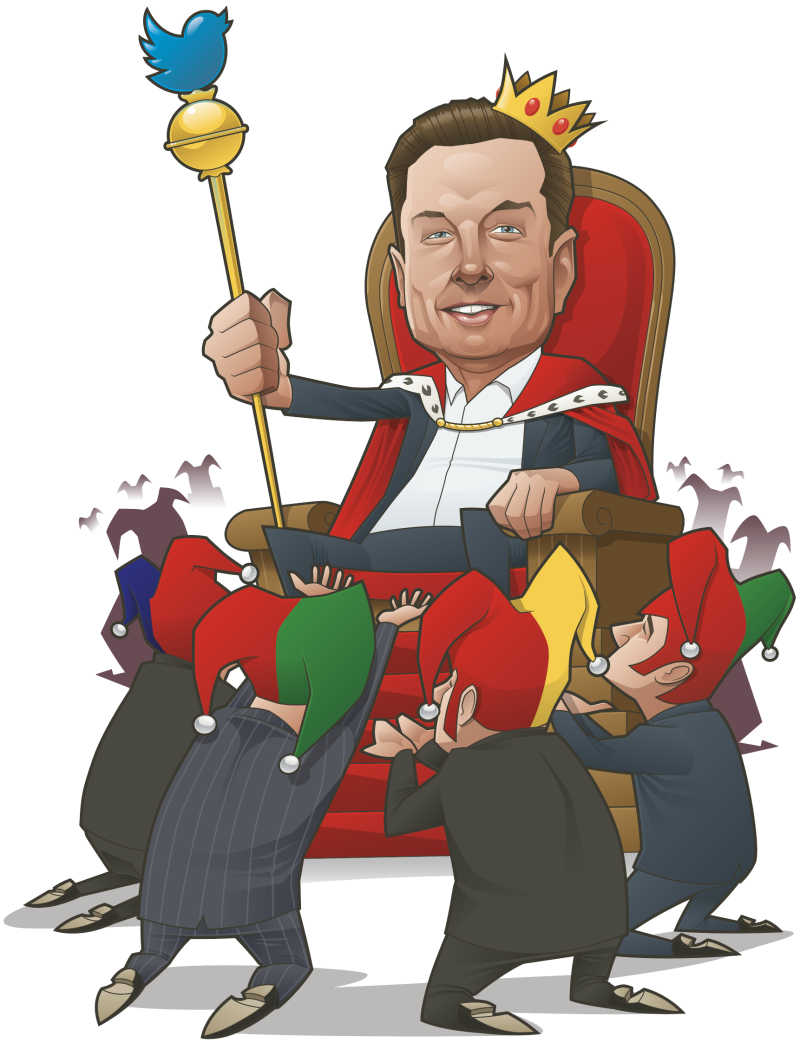Macaskill on markets: Begging for scraps at the court of King Elon is a risky business
[ad_1]

Morgan Stanley appears to have scored a rate-generating coup from its part as guide adviser to Elon Musk’s obtain of Twitter. The swift capitulation by Twitter’s board and massive shareholders to the takeover give could direct to advisory and financing price payments at a more rapidly pace than banking companies can generally count on from a leveraged buyout.
The narrative of the deal’s development has now been introduced in terms common to everyone with recollections of Wall Road takeovers in the 1980s: the visionary customer (Musk) will make an unwelcome give for a having difficulties public organization (Twitter) bankers race to set collectively a funding offer to fund a deal to choose the enterprise private, together with information that seem to be heroic to Wall Road insiders, these as weekend phone calls to main executives, occasionally interrupting family gatherings and helicopter rides can be extra as required.
Morgan Stanley shipped an assured performance in its guide position for the Twitter deal
Morgan Stanley delivered an assured overall performance in its lead position for the Twitter offer.
A $25.5 billion financing offer, together with a mixture of financial debt and margin loans backed by Musk’s Tesla holdings, was swiftly organized by Morgan Stanley advisers. Calls ended up made during the Easter weekend to make guaranteed that senior executives at other banks would be a part of the deal. Helicopters may possibly or may not have been concerned, but it was plainly an adrenaline-filled several times for the bankers.
Twitter’s own advisers – Goldman Sachs, JPMorgan and Allen & Enterprise – also played their role in guaranteeing that a major deal was agreed rapidly, bringing ahead a Wall Street payday.
A gloomy evaluation of Twitter’s potential clients by its lender advisers was reportedly a essential variable in the final decision by the firm’s board to acknowledge Musk’s provide with no actual endeavor to safe enhanced phrases. Even the $1 billion fee agreed if Musk walks absent from the purchase was lower than typical for a leveraged buyout.
So, can Wall Street’s best – and some of their pals from Europe and Asia – now sit back and wait around for their charges to get there, right before transferring on to the upcoming dealmaking triumph?
Not fully.
The $12.5 billion margin bank loan part of the Twitter funding could supply some sleepless nights for its individuals as they observe irrespective of whether or not Musk is performing just about anything to erode the value of the Tesla stock he has pledged as collateral.
Morgan Stanley is providing the greatest portion of this mortgage at $2 billion, or 16% of the complete. Bank of America, Barclays and MUFG have pledged the subsequent most significant amounts at $1.5 billion each and every, or 12%. Then comes Credit Suisse at $1.25 billion, adopted by seven other banking institutions, together with BNP Paribas, Deutsche Bank, Mizuho and Royal Financial institution of Canada.
With its distribute of 3% above the secured overnight financing charge plus once-a-year amortization at 5%, and a optimum original mortgage-to-value fee of 20% for the collateral, this presently seems to be a pretty harmless kind of margin lending for the financial institutions, with a healthful return on supply.
Musk would have to suffer a sensational slide in his web value – which not too long ago has hovered all over $250 billion – in advance of there was any explanation to expect a immediate menace to the margin personal loan delivered by the financial institutions.
But Musk is very little if not sensational, whether he is launching rockets, feuding with fellow billionaires, or building impulse buys of social media companies for $44 billion.
Any missteps that anger the person who for a while utilised the title of Tesla’s techno-king on his Twitter account could have outcomes
A dip in the value of Tesla’s inventory following the Twitter deal was introduced highlighted the speed at which Musk’s web well worth can adjust, even if it did not immediately threaten his position as the richest person in the earth.
The price of his Tesla stake fell by around $30 billion on Tuesday April 26, the day after the settlement to obtain Twitter was confirmed.
It is still not clear how Musk will present the $21 billion of fairness he pledged as aspect of the $44 billion he is spending for Twitter, but if he merely marketed Tesla inventory it would depart him with a substantially lessen shareholding to include the margin personal loan.
If Tesla stock retains in a $900 to $800 array that would not be significantly of a trouble, but if it ended up to slide much below that amount banks would have to begin stressing about his capability to deal with the $12.5 billion personal loan.
When Twitter created what may possibly be between its last quarterly earnings announcements as a community business on April 28, Tesla’s stock price tag took yet another dip to $828.
If the offer to buy Twitter were being to drop apart ahead of closure that would not be an challenge for his bankers, apart from for some missed fees.
It is easy to envisage a state of affairs the place Musk is saddled with a social media system of uncertain worth backed by diminished holdings in his publicly detailed electric powered car business, just as Tesla shares are falling, nonetheless.
It is also uncomplicated to see that situation evolving into a crisis equivalent to the Archegos disaster previous yr, when liquidation of shares held as collateral by the fund’s counterparts resulted in sharply uneven losses for its key brokers.
Credit history Suisse suffered losses of about $5.5 billion and Morgan Stanley took a strike of approximately $1 billion, whilst other Archegos brokers which includes Goldman escaped pretty much unscathed.
A plunge in the price of Tesla, which on a lot of times is the most heavily traded stock in the world, would spark improved volatility and increased volumes for the most significant fairness derivatives dealers.
One particular of the leading a few world wide equity sellers – Morgan Stanley – will be uncovered to Musk’s internet worthy of via margin exposure if the Twitter offer closes as planned. The other two – Goldman and JPMorgan – will not.
Any trades that had the result of exacerbating losses for Morgan Stanley could also affect the 11 financial institutions that joined the margin bank loan to Musk.
There are other margin financial loans that could hurt banking institutions in the function of a steep equity marketplace downturn.
Mizuho is amid firms that are exposed to margin financial loans designed to SoftBank and its founder Masayoshi Son, for instance.
For quite a few large stakes debtors, banks can just take comfort and ease from the present-day cost of shares that are pledged for loans, this kind of as SoftBank’s Alibaba holdings and Musk’s Tesla stake.
But handling the risk from these financial loans is an art not a science, and the Archegos scandal confirmed the extent to which lender counterparts can be in the dim about the authentic exposure of leveraged borrowers.
Morgan Stanley has a good deal of opportunity upside from its latest role as a trustworthy adviser at the courtroom of King Elon. Non-public prosperity administration expert services to the richest individual in the environment could perhaps variety a wholesome company line on their very own, and other funds current market mandates may possibly adhere to the Twitter purchase.
But any missteps that anger the gentleman who for a even though employed the title of Tesla’s techno-king on his Twitter account could have consequences, as JPMorgan has discovered in its dispute with Musk in excess of the value of an equity derivatives offer.
And the banking institutions that followed Morgan Stanley into financing the Twitter buy, specially its margin financial loan part, could find that they have restricted insight into dangerous publicity that is hard to handle in a choppy marketplace.
[ad_2]
Resource website link








